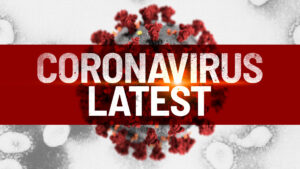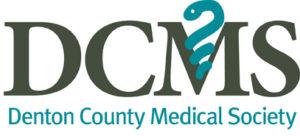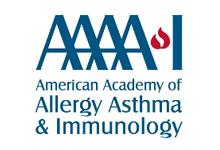Coronaviruses are a large family of viruses that are  common in people and in animals. They can cause the “common cold”. At the end of 2019, a novel coronavirus was identified as the cause of a cluster of pneumonia cases in Wuhan, a city in the Hubei Province of China. It rapidly spread, resulting in an epidemic throughout China, followed by an increasing number of cases in other countries throughout the world. In February 2020, the World Health Organization designated the disease COVID-19, which stands coronavirus disease 2019. The virus that causes COVID-19 is designated as SARS-CoV-2 (severe acute respiratory syndrome coronavirus 2). By March 2020, the World Health Organization declared it to be a pandemic. Since then, there have been over 400 million cases and 5.7 million deaths worldwide. Within the United States, there have now been more than 76 million cases and close to 900,000 deaths. As the SARS-CoV-2 virus continues to mutate and evolve, there have been several variants throughout this pandemic. Many of these mutations have little to no impact on how the virus affects humans. However, some mutations can make the virus more transmissible and contagious, like the Delta variant and currently the Omicron variant. New variants of the virus are expected to occur. Vaccination against COVID-19 is helpful for all the current circulating variants. As of February 7th 2022, about 64% of the US population has been fully vaccinated against COVID-19.
common in people and in animals. They can cause the “common cold”. At the end of 2019, a novel coronavirus was identified as the cause of a cluster of pneumonia cases in Wuhan, a city in the Hubei Province of China. It rapidly spread, resulting in an epidemic throughout China, followed by an increasing number of cases in other countries throughout the world. In February 2020, the World Health Organization designated the disease COVID-19, which stands coronavirus disease 2019. The virus that causes COVID-19 is designated as SARS-CoV-2 (severe acute respiratory syndrome coronavirus 2). By March 2020, the World Health Organization declared it to be a pandemic. Since then, there have been over 400 million cases and 5.7 million deaths worldwide. Within the United States, there have now been more than 76 million cases and close to 900,000 deaths. As the SARS-CoV-2 virus continues to mutate and evolve, there have been several variants throughout this pandemic. Many of these mutations have little to no impact on how the virus affects humans. However, some mutations can make the virus more transmissible and contagious, like the Delta variant and currently the Omicron variant. New variants of the virus are expected to occur. Vaccination against COVID-19 is helpful for all the current circulating variants. As of February 7th 2022, about 64% of the US population has been fully vaccinated against COVID-19.
Updates on Omicron
This variant was first reported in November 2021 in South Africa. By December 2021, Omicron
was detected throughout the United States. By January 15th 2022, Omicron cases within the US
peaked with its highest 7-day-average of 825,599 cases.
- Majority of new COVID cases currently are from Omicron
- Omicron is highly contagious -It has a positivity rate of 30-40% (1 in every 3-4 people is positive for COVID)
- Symptoms are milder vs severe
- Vaccines are helpful
- COVID antigen tests and COVID PCR tests are still effective in identifying COVID positive cases
- COVID cases are starting to trend downward
Updates on other variants
Variants can be classified into the following:
Variant being monitored: these are variants that have been detected but are circulating at very low levels. These variants do not pose significant risk to public health in the Unites States. There are several variants that are currently being monitored.
Variant of interest: these are variants that are more transmissible and may cause more severe disease. Currently, no SARS-CoV-2 variants are designated as variant of interest.
Variant of concern: these are variants for which there is evidence of increased transmissibility and are observed to be more infectious. They are more likely to cause breakthrough or re-infections in those who are vaccinated or previously infected. These variants are more likely to cause severe disease, evade diagnostic tests, or resist antiviral treatment. The Delta and Omicron variants of the SARS-CoV-2 coronavirus are classified as variants of concern.
Variant of high consequence: these are variants for which there is evidence of severe disease, increased hospitalizations, failure of diagnostics tests to detect these variants, and current vaccines do not offer protection. As of now, there are no SARS-CoV-2 variants of high consequence.
Additional updates on variants can be found at the CDC website:
https://www.cdc.gov/coronavirus/2019-ncov/variants/variant-classifications.html#anchor_1632150752495
Updates on COVID-19 vaccines
Vaccines are our best protection against infections. They work by teaching your body to recognize specific dangerous pathogens, so your immune system is prepared to fight off that infection in the future. A recent study showed that unvaccinated people are 97 times more likely to die from COVID-19 infection compared to those who have had COVID-19 boosters. This proves that vaccines are helpful in decreasing morbidity and mortality. In the U.S., there are still currently 3 available COVID-19 vaccines:
Pfizer-BioNTech mRNA COVID-19 vaccine:
This is a two-dose vaccine for anyone age 5 and up. The second dose is given 3 weeks after the first. For immunodeficiency or immunocompromised patients, a 3rd dose is recommended and given 1 month after the 2nd dose. A booster dose is recommended for those who are 12 and up and is given 5 months from the initial series.
Over 300 million doses have been given in the U.S.
Pfizer Timeline:
- Emergency use approval in December 2020 for ages 16 and up
- Emergency use approval in May 2021 for ages 12 and up
- 3rd dose recommendation for immunocompromised people in August 2021
- Full FDA approval in August 2021 for ages 12 and up
- Approved vaccine will be marketed as Comirnaty
- Emergency use approval in October 2021 for ages 5 – 11
- Booster recommendation in November 2021 for adults, 18 and up
- Booster recommendation in January 2022 for children, 12 and up
- Recommendations for vaccine may be coming soon for ages 6 months – 4 years
Moderna mRNA COVID-19 vaccine:
This is a two-dose vaccine for anyone age 18 and up. The second dose is given 4 weeks after the first. For immunodeficiency or immunocompromised patients, a 3rd dose is recommended and given 1 month after the 2nd dose. A booster dose is recommended for those who are 18 and up and is given 5 months from the initial series.
Over 200 million doses have been given in the U.S.
Moderna Timeline:
- Emergency use approval in December 2020 for ages 18 and up
- Full FDA approval in January 2022 for ages 18 and up
- Approved vaccine will be marketed as Spikevax
- Data from clinical trials in children 12-17 is being reviewed by FDA
- Studies are being conducted in children ages 6 months – 4 years
Janssen/Johnson & Johnson COVID-19 vaccine:
This is viral vector one-dose vaccine for anyone age 18 and up. A booster dose with an mRNA vaccine (Pfizer or Moderna) is recommended 2 months after the Janssen/Johnson & Johnson vaccine for that age 18 and up. Its emergency use approval was given in February 2021 for age 18 and up.
Over 18 million doses given in the U.S
For more information on how these vaccines work, side effects, and allergic reactions, please refer to our previous article:
https://www.northtexasallergy.com/covid-19-vaccine-updates-what-you-need-to-know/
Updates on treatment for COVID-19
For milder illness, rest at home, drink fluids, acetaminophen or ibuprofen for fever or pain. Over-the-counter medications might help with sore throat or congestion. Monitor your symptoms. Symptoms usually resolve within 2 weeks.
For more moderate or severe symptoms, such as shortness of breath, difficulty breathing, hospitalization may be required. For severe cases, treatment might include supplemental oxygen, assisted ventilation and other supportive measures, such as IV-fluids. Corticosteroids, such as dexamethasone may be given as well. Remdesivir is the first and only drug approved by the FDA for treatment of hospitalized COVID patients over the age of 12. Research shows that some patients recover faster after taking it. The FDA has also granted an emergency use approval of blood plasma from people who have recovered from COVID-19 in order to help patients with severe or life-threatening cases. This treatment is called convalescent plasma.
Current outpatient treatments for COVID-19:
For people who are at high risk of disease progression or developing severe COVID-19 symptoms, oral anti-viral treatments or monoclonal antibody treatments could be helpful.
Anti-viral treatments:
Effective antiviral treatments can shorten the duration of the illness and lessen complications in some people.
Paxlovid (Pfizer) and Molnupiravir (Merck)
These are anti-viral pills for the treatment of mild-to-moderate COVID-19 in people who are at increased risk for severe illness. The FDA gave emergency use approval for both in December 2021. They are prescriptions. You must have a positive covid test and start treatment within 5 days of onset of symptoms. Paxlovid is approved for age 12 and older. Clinical studies showed an 88% reduced risk of COVID-related hospitalization or death compared to placebo. Some of side effects were generally mild and include impaired sense of taste, diarrhea, high blood pressure, and muscle aches. Molnupiravir is approved for age 18 and older. Clinical studies showed a 30% reduced risk of COVID-related hospitalization or death compared to placebo. Some of side effects were generally mild and include diarrhea, nausea, and dizziness.
Monoclonal Antibodies
These are man-made proteins that can help the body fight off COVID-19 and reduce the risk of severe disease and hospitalization.
Previously, the FDA approved three monoclonal antibody treatments for COVID-19:
- casirivimab + imdevimab (Regeneron)
- bamlanivimab + etesevimab (Eli Lilly)
- sotrovimab (GlaxoSmithKline)
Recent studies have shown that only sotrovimab is effective again the Omicron variant and thus the FDA removed its approval of the other two monoclonal treatments. Sotrovimab may be used to treat non-hospitalized adults and children over age 12 with mild to moderate symptoms who have recently tested positive for COVID-19, and who are at risk for developing severe COVID-19 or being hospitalized for it. This therapy must be given intravenously (by IV) soon after developing symptoms and within 10 days of onset of symptoms. Clinical studies showed up to an 85% reduction in hospitalization and/or death compared to placebo. Possible side effects include allergic reactions, injection site pain, bleeding, or bruising. Sotrovimab is still being studied, so it is possible that all of the risks are not known at this time.
Our Commitment and Office updates
We know much more about COVID-19 than we knew at the beginning of the pandemic. Information is constantly evolving. Vaccine clinical trials are still being conducted, particularly for children under the age of 12. There are also many clinical studies looking at various other treatments and/or prophylaxis for COVID-19. As always, our physicians at North Texas Allergy and Asthma Center have been following the pandemic, CDC guidelines, WHO guidelines as well as U.S. and state guidelines. We are committed to doing our part to help decrease the spread of COVID-19.
We encourage everyone who is eligible to get vaccinated against COVID-19 as it helps decrease the risk of severe disease, complications, and death from COVID-19.
At this time, we are not offering any vaccinations for COVID-19 though our office. COVID-19 vaccines are readily available at many locations. You can check with your primary care physician or your local pharmacy. At this time, we do not diagnose or treat COVID-19 at our office.
We are continuing to see patients for in-person visits with our existing cleaning protocol and safety measures still in place. We also offer telemedicine visit as well. If interested in making an appointment, please contact our office to see one of our board-certified allergists/immunologists.
We are happy to serve the Denton and Gainesville communities, and the surrounding area.
Sincerely,
Samuel Foster MD, Roshni Foster MD, PhD, Shikha Mane MD and B.A. Badie, MD
Board-Certified Allergists
Adult and Pediatric Allergy and Immunology







